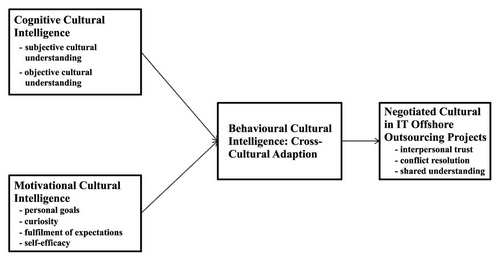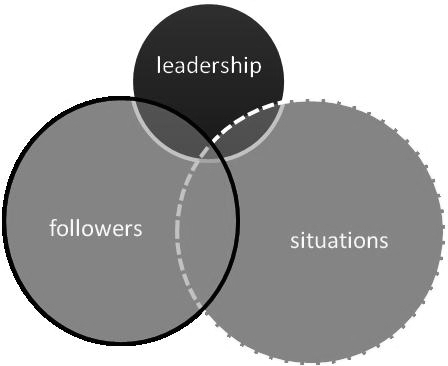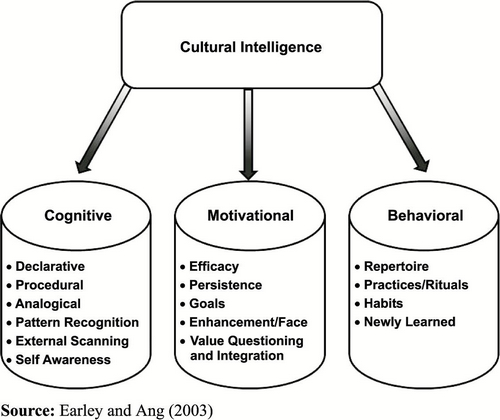Global Leaders and Cultural Diversity
скачать Автор: Teymouri, Wali - подписаться на статьи автора
Журнал: Age of Globalization. Number 3 / 2013 - подписаться на статьи журнала
One of the major features of the modern world is the diversity of ideas and attitudes; therefore, leaders should know how to communicate with the account of this inherent point. In other words, a global leader is required to be culturally intelligent and such ability can be acquired only with the lapse of time.
The present article is devoted to the issue of cultural intelligence as an essential characteristic of global leadership. The purpose of the study is to develop a theoretical framework for the relationship between the globalizing world,global leaders and cultural intelligence through the analysis of the existing literature on the subject and other related data. The findings of the study confirmed the assumption that future world leaders should be aware of cultural diversity to carry out the process of the ongoing globalization. They must believe in collective global governance based on mutual respect and understanding.
Keywords: culture, cultural intelligence, global leaders, globalization.
Introduction
The contemporary world witnesses globalization as a major socio-political trend in all aspects of life, which has led to the emergence of the concepts of global governance. In the past most people were born, lived and died in one and the same geographical region and never met with representative of other cultures. But nowadays one can hardly meet people who live all their lives without getting in touch with people of a different culture.
Meanwhile, one should distinguish internationalization from globalization. Internationalization is a project designed by certain groups and countries in order to maximize their own profits. Within this framework nobody cares about others' profit. The powerful relations and personal profit determine the desired output of the project.
On the other hand, globalization is a natural process that brings people of different ethnic background close together. Globalization is in harmony with human nature and it is a reality that human beings understand quite well.[1] The world globalized in this way is characterized by an abundance of international contacts between people of different cultures. There are more opportunities for individuals to meet, interact and live side by side with people with different cultural background. The rapid changes in human societies contribute to the emergence of a developed society in which all human values are actualized, and a person achieves a real moral perfection and happiness. This will be the world of perfect and powerful humankind. The good leadership can help to work out such an interpretation of globalization; it is a reaction to the on-going complexity development, changes, individual differences, and diverse situations.[2] Such a leadership establishes a firm relationship both among leaders of different societies and between leaders and their followers in any given condition. There is no doubt that this kind of leadership is impossible without applying multiple intelligences. In addition to the ordinary intelligence (IQ) and emotional intelligence (EQ), modern leaders should be culturally intelligent as well.[3] The future world leaders must be aware of cultural diversity to set the right trend of globalization. They should believe in mutual respect and the nations' equal rights. That is to say, they need to be culturally intelligent to have an impact on the current trend of globalization.[4]
Literature Survey
To design a model of global leadership, Joost Bücker and Erik Poutsma[5] studied the following four factors: global framework, intercultural competencies, intercultural sensitivities and cultural intelligence. They found out that cultural intelligence is of real importance in this respect.
Lynn Imai and Michele J. Gelfand[6] examined the impact of cultural intelligence on the process of negotiation. Their study included 124 subjects from the USA and East Asian countries. The findings of their research showed that there is a meaningful relationship between these factors.
Ilan Alon and James M. Higgins[7] in their model (see Fig. 4) showed that there should be a good balance between IQ, EQ and organizational intelligence as well as other motivations within any company.
Robert Gregory, Michael Prifling and Roman Beck[8] explored the cultural intelligence through 32 interviews and analyses of their findings. Thus, they developed a model of the impact of cultural intelligence on the IT systems' output.

Fig. 1
Klaus J. Templer, Cheryl Tay and N. Anand Chandrasekhar[9] state that cultural intelligence affects an individual's ability to adapt himself/herself to the new requirements of global leadership. They found out that those who willingly learn about new cultures adapt easily when placed within a new cultural context and show a higher sense of responsibility in the international and global interactions.
Globalization Theory
The leadership study has led to a model based on three elements: a leader, the followers and situations as shown in Fig. 2.

Fig. 2
These three elements interact to a different extent under any given situation. The major element of this model is leadership. Leadership has many different forms and styles: from the simplest type of command and control to more complex interactive forms.[10]
The basic factors of ‘Duty’ and ‘Relationship’ also affect the process of globalizing leadership and, therefore, are explored by experts in management.[11] These two factors can be defined as leaders' responsibility and leaders' communication. The first group implies a one-sided activity to control the followers; these responsibilities do not demand a high level of skills and need only a high level of IQ to make others act in a certain ways. This style of leadership worked out well in the industry and driver communities. The second style is more the result of emotional and social interaction in the context of interrelationship with others; this type of relationship is not simply logical and rational in nature, but roots in the need of individuals to develop their personality as a social being. Emotional leadership unites the leaders with each other and with their followers.[12]
Global Leaders
We are living in the era of rapid changes and flexibility in almost every sphere of everyday life. This requires leaders who can keep the trend in check. Those leaders who want to be globally influential must think beyond the borders, including the nations' geographic boundaries. Awareness of cultural and ethnic values and diversities as well as establishing a multicultural relationship within human communities is the key concepts of globalized leadership.[13] Cultural intelligence plays a crucial role in realizing objectives of globalized leadership. CQ functions as software and IQ is in fact the hardware of human capital. The objective is to familiarize the current state of cultural diversity. The globalized world requires leaders who are well aware of multiple intelligences and are able to apply both CQ and IQ in performing their leadership functions.
Cultural Intelligence Theory
The concept of intelligence in modern life is much broader than its traditional understanding. In psychology, intelligence is an outcome of innovation, personality and reasoning.[14]
This concept is extensively investigated and there is already quite a lot of works on the subject. These studies indicate that the issue of intelligence should be approached from different aspects; and experts analyze various types of intelligence.[15]
Culture
The term culture refers to the set of traditions, customs, religious rituals, moral values, and literary heritage of any given community. The definition of these concepts is the first step in studying culture.[16] The comprehensive definition of culture regards it consisting of two tangible and non-tangible elements.
In this definition non-tangible/mental culture relates to the individual's understanding of his/her environment and its values and norms.[17] On the other hand, tangible culture is related to legal systems, economic, political, religious and educational practices (Ang and Inkpen 2008; Leung and Ang).[18] The human interaction is the core of this study and of other researchers in this area.[19]
These interactions are easy to observe and analyze, they give the researchers a firm understanding of people's values and traditions.
In tourism industry, the organization of human relations by tour guides is only possible when they have this cultural awareness and show it in their interactions with tourists in a way satisfying tourists.
Cultural awareness, internal motivation to understand cultural behaviors, and cultural behaviors are three elements that make up one's cultural intelligence.
Cultural Intelligence
Cultural intelligence is directly related with diverse work environment. It enables individuals to understand how others think and react to behavior pattern. The end result is to facilitate cultural relations and empower those involved by the required management skills. The complexity of work environments makes cultural intelligence a necessary component. Those with low level of cultural intelligence are not able to communicate with their colleagues and fail in their management.
P. C. Earley and S. Ang have defined cultural intelligence as an ability to learn new cultural patterns while interacting with others and the capacity of reacting properly under these conditions.[20] They believe that finding familiar cultural clues in new situations is usually difficult. An individual needs to establish a common cultural framework through the application of cultural intelligence.
The other definition for cultural intelligence say that it is an individual's ability of lifelong learning of cultural diversity that gives people cultural flexibility in their daily interactions. It also applies to emotional intelligence and social intelligence.[21]
The most important factor of cultural intelligence is its dynamic quality.[22] The scientists regarded it as an interdisciplinary concept.[23]
Basing on the existing literature, one can say that cultural intelligence is the individual's ability to adapt in new cultural settings.[24]
Global leaders need to be aware of different elements of cultural intelligence (see Fig. 2).

Fig. 3
Source: Earley, P. C. and Ang, S. Cultural Intelligence...
Cultural Awareness
Cultural awareness is an observable factor that deals with cultural behavior and answers the questions: What makes people behave in a similar manner and what is the reason of these common patterns?
Cultural awareness emphasizes the necessity to understand the nature of culture and cultural interactions. The main issues to deal with are: the definition of culture, cultural flexibility and transfer, and the ability to understand other cultures as an essential factor in gaining this flexibility.
The emotional aspect of cultural intelligence deals with cultural interaction and exchange,[25] which essentially requires, alongside with other factors, curiosity.[26] Self-belief, which is known as the individual's understanding of his/her abilities in cultural matters, is also an essential element of cultural intelligence.[27] Those who lack it do not show a high level of motivation when contacting with other cultures and fail to build bridges with them.[28]
The behavioral aspect of cultural intelligence refers to those specific behavioral patterns that promote cultural understanding.[29]
In cultural interaction, two important factors of cultural awareness and cultural motivation work together to urge an individual to cultural interaction with people of other backgrounds. Some of the essential skills are as follows:
– Active listening;
– Asking question;
– Summarizing;
– Communicative skills.
The proper cultural exchange based on these issues, enables people of differnt backgrounds to take well each other. The most positive aspect of cultural intelligence is that it can be developed through a proper training.[30]
Conclusion
We are living in the era of rapid changes and flexibility in almost every aspect of everyday life. Being diverse and at the same time interdependent, human societies need the leaders with a great knowledge of intercultural communications. They should understand the existing diversity and differences by applying several intelligences (ordinary intelligence – IQ, emotional intelligence – EQ, cultural intelligence, and cultural awareness etc.) and should be in close contact with a relevant representative in other cultures. That is to say, the globalized world need a management realized within a coherent and proper advisory board. The need for those leaders who can control the trend of change in contemporary world is a generally accepted fact. The main skill of global leaders is their cultural intelligence.[31] Only leaders with a high level of cultural intelligence can affect the trend of changes. What is needed in the modern globalized world is the understanding of other cultures, belief in diversity, and cultural interaction with people of different cultural backgrounds. The world leaders should believe in mutual respect and equal rights of the nations. They must be aware of cultural diversity to carry out the real globalization process. They must believe in a collective global convergence based on mutual respect and understanding.
[1] Thomas, D. C., Inkson K. Cultural Intelligence People Skills for Global Business. – New York: Berrett-Koehler, 2004.
[2] Friedman, T. The World is Flat. – New York: Farrar, Straus and Giroux, 2005.
[3] Chin, C. O., Gaynier, L. P. Global Leadership Competence: A Cultural Intelligence Perspective. Presented at the 2006 MBAA Conference. URL: http: //www.csuohio.edu/sciences/dept/psychology/graduate/diversity/ GlobalLeadership11206.pdf.
[4] Thomas, D. C., Inkson, K. Cultural Intelligence People Skills for a Global Workforce // Consulting to Management. – 2005. – Num. 16(1). – Pp. 5–9.
[5] Bücker, J., Poutsma, E. Global Management Competencies: A Theoretical Foundation // Journal of Managerial Psychology. – 2010. – Num. 25(8). – Pp. 829–844.
[6] Imai, L., Gelfand, M. J. The Culturally Intelligent Negotiator: The Impact of Cultural Intelligence (CQ) on Negotiation Sequences and Outcomes // Organizational Behavior and Human Decision Processors. – 2010. – Num. 112. – Pp. 83–98.
[7] Alon, I., Higgins, J. M. Global Leadership Success through Emotional and Cultural Intelligence // Business Horizons. – 2005. – Num. 48. – p. 501–512.
[8] Gregory, R., Prifling, M., Beck, R. The role of cultural intelligence for the emergence of negotiated culture in IT offshore outsourcing projects // Information Technology and People. – 2009. – Num. 22. – Pp. 223–241.
[9] Templer, K. J., Tay, C., Chandrasekhar, N. A. Motivational cultural intelligence, realistic job preview, realistic living conditions preview and cross-cultural adjustment // Group and Organization Management. – 2006. –Num. 31(1). – Pp. 154–173.
[10] Bass, B. M. From Transactional to Transformational Leadership: Learning to Share the Vision // Organizational Dynamics. – 1998. – Num. 18(3). – Рp. 19–31; Avolio, B. J. Full Leadership Development: Building the Vital Forces in Organizations. – Thousand Oaks, CA: Sage, 1999; Tejeda, M. J. The MLQ Revisited: Psychometric Properties and Recommendations // Leadership Quarterly. – 2001. – Num. 12. – Pp. 31–52.
[11] Halpin, A. W., Winer, B. J. A Factorial Study of Leader Behavior Descriptions // Leader Behavior: Its Descriptions and Measurement / Ed. by R. M. Stogdill, A. E. Coons. – Columbus, OH: Bureau of Business Research, Ohio State University, 1957.
[12] Golman, D. Emotional Intelligence: Issues in paradigm building // The Emotionally Intelligent Workplace / Ed. by C. Cherniss, D. Golman. – San Francisco, CA: Jossey Bass, 2001. – pp. 13–26.
[13] Hollander, E. P. Leadership Dynamics. – New York: Free Press, 1978.
[14] Gardner, H. Leading Minds. – New York: Basic, 1995.
[15] Wannamaker, C. M. A Study of the Need for Emotional Intelligence in University Judicial Officers. PhD Dissertation, Drexel University, 2005. URL: http://proquest.umi.com.
[16] D'Andrade, R. The Development of Cognitive Anthropology. – Cambridge: Cambridge University Press, 1995.
[17] Triandis, H. C. The Analysis of Subjective Culture. – New York: John Wiley, 1972.
[18] Ang, S. Inkpen, A. C. Cultural Intelligence and Offshore Outsourcing Success: A Framework of Firm-Level Intercultural Capability // Decision Sciences. – 2008. – Num. 39(3). – pp. 337–358; Leung, K., Ang, S. Culture, Organizations and Institutions: An Integrative Review. Cambridge Handbook of Culture, Organizations, and Work. – New York: Cambridge University Press, 2008.
[19] Ortner, S. B. Theory in Anthropology since the Sixties // Comparative Studies in Society and History. – 1984. – Num. 26(1). – pp. 126–166.
[20] Earley, P. C., Ang, S. Cultural Intelligence. Individual Interactions across Cultures. – Stanford: Stanford University Press, 2003.
[21] Earley, P. C., Ang, S. Cultural Intelligence…; Ng, K.–Y., Earley, P. C. Culture + Intelligence: Old Construct, New Frontiers // Group and Organization Management. – 2006. – Num. 31(1). – p. 4–19; Thomas, D. C., Inkson, K. Cultural Intelligence People Skills for Global Business. – New York: Berrett-Koehler, 2004.
[22] Ortner, S. B. Theory in Anthropology since the Sixties // Comparative Studies in Society and History. – 1984. – Num 26(1). – pp. 126–166; Reckwitz, A. Toward a Theory of Social Practices: A Development in Culturalist Theorizing // European Journal of Social Theory. – 2002. – Num. 5(2). – pp. 78–99.
[23] Earley, P. C., Ang, S. Cultural Intelligence…; Ng, K.–Y., and Earley, P. C. Culture + Intelligence…; Thomas, D. C., Inkson K. Cultural Intelligence People Skills for Global Business. – New York: Berrett-Koehler, 2004.
[24] Earley, P. C. Redefining Interactions across Cultures and Organizations: Moving Forward with Cultural Intelligence // Research in Organizational Behavior. – 2002. – Num. 24. – pp. 271–299.
[25] Earley, P. C., Ang, S. Cultural Intelligence…
[26] Berlyne, D. E. Conflict, Aarousal, and Curiosity. – New York: McGraw Hill, 1960; Earley, P. C., Ang, S. Cultural Intelligence...; Thomas, D. C. Domain and Development of Cultural Intelligence: The Importance of Mindfulness // Group and Organization Management. – 2006. – Num. 31(1). – pp. 78–99.
[27] Bandura, A. Social Foundations of Thought and Action: A Social Cognitive Theory. – New York: Prentice Hall, 1986; Bandura, A. Self-Efficacy: The Exercise of Control. – New York: Freeman, 1997.
[28] Raghuram, S. Individual Effectiveness in Outsourcing // Human Resource Management. – 2006. – Num. 25(2). – pp. 127–133.
[29] Earley, P. C., Ang, S. Cultural Intelligence…
[30] Brislin, R., Worthley, R., Macnab, B. Cultural Intelligence: Understanding Behaviors that Serves People's Goals // Group and Organization Management. – 2006. – Num. 31(1). – p. 40.
[31] Manning, T. T. Leadership Across Cultures: Attachment Style Influences // Journal of Leadership and Organizational Studies. – 2003. – Num. 9(1). – Рp. 20–32.





